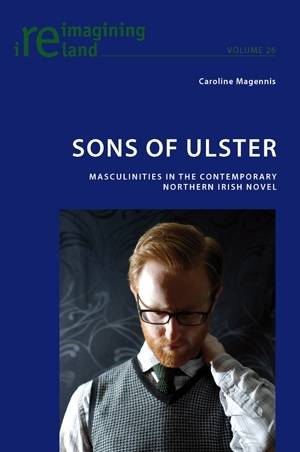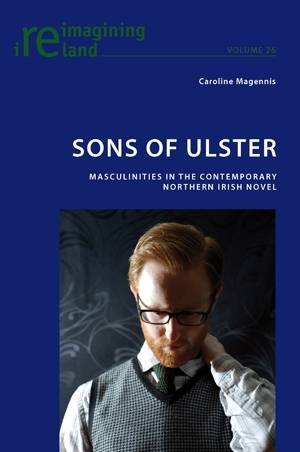
- Afhalen na 1 uur in een winkel met voorraad
- Gratis thuislevering in België vanaf € 30
- Ruim aanbod met 7 miljoen producten
- Afhalen na 1 uur in een winkel met voorraad
- Gratis thuislevering in België vanaf € 30
- Ruim aanbod met 7 miljoen producten
Zoeken
Sons of Ulster; Masculinities in the Contemporary Northern Irish Novel
Masculinities in the Contemporary Northern Irish Novel
Caroline Magennis
€ 60,95
+ 121 punten
Omschrijving
Both masculinity and the Northern Irish conflict have been the subjects of a great deal of recent scholarship, yet there is a dearth of material on Northern Irish masculinity. Northern Ireland has a remarkable literary output relative to its population, but the focus of critical attention has been on poetry rather than the fine novels that have been written in and about Ulster. This book goes some way towards remedying the deficiency in critical attention to the Northern Irish novel and the lack of gendered approaches to Northern Irish literature and society.
Sons of Ulster explores the representation of masculinity within a number of Northern Irish novels written since the mid-1990s, focusing on works by Eoin McNamee, Glenn Patterson and Robert McLiam Wilson. One of the key aims of the book is to disrupt notions of a hegemonic Northern Irish masculinity based on violent conflict and hyper-masculine sectarian rhetoric. The author uses the three sections of the text to represent the three key facets of Northern Irish masculinity: bodies, performances and subjectivity bound up with violence.
Sons of Ulster explores the representation of masculinity within a number of Northern Irish novels written since the mid-1990s, focusing on works by Eoin McNamee, Glenn Patterson and Robert McLiam Wilson. One of the key aims of the book is to disrupt notions of a hegemonic Northern Irish masculinity based on violent conflict and hyper-masculine sectarian rhetoric. The author uses the three sections of the text to represent the three key facets of Northern Irish masculinity: bodies, performances and subjectivity bound up with violence.
Specificaties
Betrokkenen
- Auteur(s):
- Uitgeverij:
Inhoud
- Aantal bladzijden:
- 184
- Taal:
- Engels
- Reeks:
- Reeksnummer:
- nr. 26
Eigenschappen
- Productcode (EAN):
- 9783034301107
- Verschijningsdatum:
- 14/05/2010
- Uitvoering:
- Paperback
- Formaat:
- Trade paperback (VS)
- Afmetingen:
- 155 mm x 224 mm
- Gewicht:
- 299 g

Alleen bij Standaard Boekhandel
+ 121 punten op je klantenkaart van Standaard Boekhandel
Beoordelingen
We publiceren alleen reviews die voldoen aan de voorwaarden voor reviews. Bekijk onze voorwaarden voor reviews.











